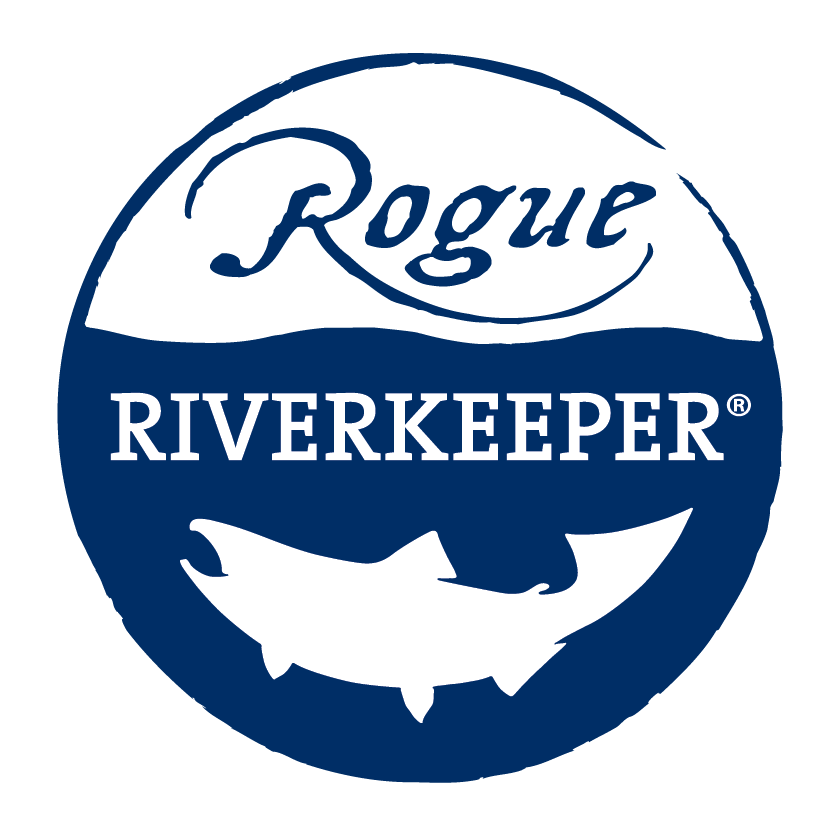The 50th Anniversary of the Clean Water Act!
The Clean Water Act Matters to the Rogue
On October 18th, 2022 we celebrate the 50th anniversary of the landmark Clean Water Act—the principle law governing water quality in the U.S. that protects us from pollution and has allowed us to clean up many waterways. But you may be wondering what it does for the Rogue Basin and how we can ensure to keep our local waters swimmable, drinkable, and fishable into the future?
The Clean Water Act has many sections, each one relating to a different way pollution can enter waterways. The Clean Water Act provides citizens with tools to ensure our waterways are protected by the inclusion of the public comment period, it requires states to assess water quality and take action to restore polluted waters, and it provides citizens with rights to information and participation in water quality decision-making and permitting. Without this last provision, Rogue Riverkeeper wouldn’t be able to enforce the Act in court when governments or polluters violate the law.
If a citizen or corporation engages in activities that have the potential to pollute or impair water quality (such as discharging waste into a waterway, dredging activities, construction, or development), Rogue Riverkeeper can monitor the permitting process, comment, and provide a means for others to comment through our Action Alerts. When Rogue Riverkeeper asked the Rogue Basin community to step up and comment on the dredging permit application by Hellgate Jetboat Excursions, over 1,000 of you fought back against a 10 year authorization to dredge and discharge up to 1,050 cubic yards of sediment annually. That was the Clean Water Act in action! With the help of supporters like you, we successfully demonstrated that the proposed dredging would harm the Rogue River, threatening clean water and healthy fish habitats, resulting in the abandonment of that project. The Clean Water Act gives us the process by which we can protect and defend the waters we value.
Here are some of the provisions in the Clean Water Act that Rogue Riverkeeper can use to hold polluters accountable to protect the Rogue:
A view of the lower Rogue River.
Credit: Holly Christiansen
On Discharge Elimination Permits
Any water that travels through a pipe, ditch, or similar conveyance is not allowed to dump dangerous wastes, chemicals, and other pollution into water without regulation. In the Rogue, all stormwater that enters a pipe is ultimately connected to a waterway. Jurisdictions that operate stormwater pipes operate under a permit and are held to a specific standard. In the Rogue Basin, all wastewater treatment plants discharge into the Rogue River or a tributary under a Clean Water Act permit. It is the Clean Water Act that establishes a standard for wastewater and provides the means by which to enforce on those operations that do not meet that standard.
Dredge and Fill Permits
Dredging and filling of waters for mining, pipelines, and other development is regulated and not allowed without a permit. Rogue Riverkeeper uses this provision to stop activities like dredging by jet boat operators and construction as was proposed for the Jordan Cove LNG pipeline.
In photo from left to right: Rogue Riverkeeper volunteer, Sarah Lilley Rogue Riverkeeper Water Quality Monitoring Program Intern, and Frances Oyung Rogue Riverkeeper Program Director
Credit: Frances Oyung
Backstops to protect water quality
States and Tribes are allowed to evaluate federal permits involving pollution discharges to ensure water quality protection. This means local people can be involved in reviewing and commenting on these activities via a public comment period.
Establishing Water Quality Standards and Limits
Pollution controls, limits, and monitoring under required permits protect public health and water quality needed for drinking water, fisheries, swimming, fish and wildlife, farming, and many other uses. Rogue Riverkeeper’s summer water quality monitoring program collects data related to water safety both more frequently and from more sites than anyone else in our region, including the Dept. of Environmental Quality and any local governmental jurisdictions.
Even after fifty years, the Clean Water Act is still under threat. Early in October 2022, the Supreme Court heard arguments as they prepare to make a decision that would weaken the protections found under the law by removing smaller waterways like wetlands and small streams from protection. The arguments regarding the definition of “Waters of the United States” or WOTUS considered by the Supreme Court will determine where we can protect water quality by dramatically redefining which waters can be protected from pollution and destruction.



